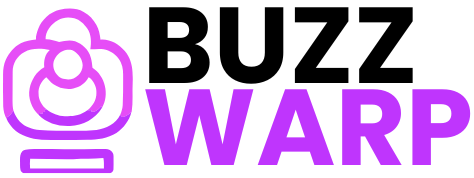Introduction
Starting a small business from home with minimal investment is a dream for many. It offers the flexibility to be your own boss, work on something you’re passionate about, and avoid hefty startup costs. With the right approach and planning, you can turn your idea into a thriving business, even with limited resources.
Understanding Your Business Idea
Choosing a Niche You Are Passionate About
The first step is identifying what you love to do. Are you skilled in graphic design? Do you enjoy baking? Your passion can be the foundation of your business.
Identifying Market Demand
Passion alone isn’t enough. Research the market to see if there’s a demand for your idea. Use tools like Google Trends and social media to gauge interest.
Planning Your Business
Writing a Simple Business Plan
You don’t need a fancy plan—just outline your goals, target audience, and how you’ll make money. Think of it as your business roadmap.
Setting Clear Goals and Milestones
Break your objectives into smaller, achievable tasks. This helps you stay focused and measure your progress.
Legal and Financial Basics
Registering Your Business
Check your local regulations. You might need to register your business name or get a small business license.
Understanding Tax Implications
Learn the basics of self-employment taxes to avoid surprises down the road.
Setting Up a Business Bank Account
Keeping personal and business finances separate simplifies bookkeeping.
Low-Cost Business Ideas
Freelancing and Consulting
Offer your skills in writing, graphic design, or coaching online.
Dropshipping
Sell products without holding inventory. Partner with suppliers to ship directly to customers.
Digital Content Creation
Monetize blogs, YouTube channels, or social media content.
Handmade Crafts and Products
If you’re crafty, sell your creations on platforms like Etsy.
Building Your Brand
Creating a Unique Business Name
Choose a name that reflects your business and is easy to remember.
Designing a Logo on a Budget
Use tools like Canva or Fiverr to create a professional-looking logo.
Establishing Your Brand Identity
Define your business’s voice, values, and visual style.
Setting Up Your Workspace
Optimizing Your Home Office
Dedicate a quiet space for work. Add essentials like a desk, chair, and good lighting.
Investing in Essential Tools and Equipment
Start with the basics, and upgrade as your business grows.
Leveraging Technology for Success
Using Free or Low-Cost Software
Explore tools like Trello for project management and QuickBooks for accounting.
Building a Simple Website
Platforms like Wix and WordPress make it easy to create a website on a budget.
Utilizing Social Media Platforms
Set up profiles on platforms where your target audience hangs out.
Marketing Your Business
Developing a Cost-Effective Marketing Strategy
Focus on digital marketing methods like social media and SEO.
Leveraging Email Marketing
Start building an email list to engage with potential customers.
Networking in Online Communities
Join Facebook groups or forums in your niche to connect with others.
Managing Your Finances
Budgeting Effectively
Track your income and expenses to avoid overspending.
Keeping Track of Expenses
Use apps like Wave or FreshBooks to manage your financial records.
Scaling Strategically
Reinvest profits to grow your business step by step.
Staying Productive at Home
Setting a Daily Schedule
Structure your day to maximize productivity and stay disciplined.
Avoiding Common Distractions
Minimize interruptions by creating boundaries with family and friends.
Challenges and How to Overcome Them
Managing Limited Resources
Prioritize essential expenses and find creative ways to save money.
Maintaining Work-Life Balance
Set clear boundaries between work and personal time to avoid burnout.
Success Stories for Inspiration
Look at entrepreneurs like those who started from a garage and turned their ventures into multimillion-dollar companies. Their journeys prove it’s possible.
Scaling Your Business
Knowing When to Expand
Once your business is stable, explore new opportunities to grow.
Strategies for Growth
Consider hiring freelancers or launching additional products/services.
Conclusion
Starting a small business from home with minimal investment is entirely achievable. With passion, planning, and perseverance, you can create a venture that not only generates income but also fulfills your dreams. Remember, every big success story starts with a single step.
FAQs
1. What are the best home-based business ideas?
Freelancing, blogging, dropshipping, and crafting are popular and cost-effective options.
2. How much money do I need to start a home business?
You can start with as little as $100, depending on your chosen business.
3. How do I market my small business on a tight budget?
Focus on social media, SEO, and word-of-mouth referrals.
4. Do I need a business license to work from home?
It depends on your local laws and the type of business.
5. How can I stay motivated when working from home?
Set goals, celebrate small wins, and maintain a healthy work-life balance.

